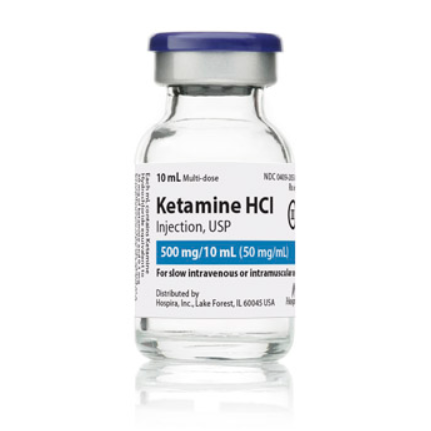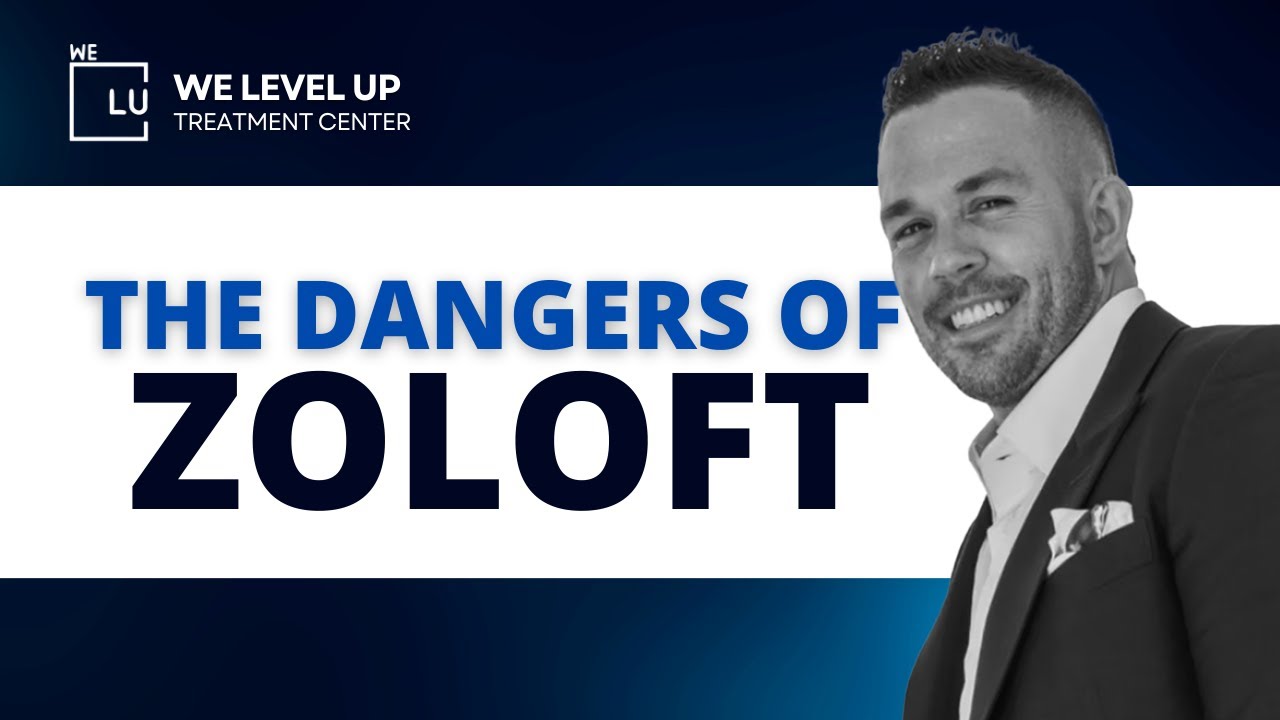Is Ketamine an Opioid?
Ketamine is a rapid-acting general anesthetic. While both ketamine and opioids can provide pain relief, they differ in their mechanisms of action. Opioids primarily interact with opioid receptors, whereas ketamine works as an NMDA receptor antagonist, blocking specific receptors in the brain.
Abuse of both opioids and ketamine can lead to the development of substance use disorder. Addiction and dependency can result from mishandling or overusing these drugs, which puts one’s physical and mental health in danger. To reduce the chance of forming dependency, people must take these drugs exactly as directed by a licensed healthcare practitioner.
If you’re struggling with ketamine or opioid addiction, reclaim your life today! Call We Level Up Texas Treatment Center 24/7 for a free consultation.
What is Ketamine?
An NMDA antagonist, it is used as a sedative, anesthetic, off-label as an antidepressant, or recreationally as a hallucinogenic drug of abuse.
Ketamine Drug Class
Ketamine is a rapid-acting general anesthetic and NMDA receptor antagonist used for induction of anesthesia diagnostic and surgical procedures, generally in combination with a muscle relaxant.
What Does Ketamine Do to Your Brain?
Perhaps most interesting is ketamine’s effects on brain connectivity related to self-monitoring behaviors.
When someone uses ketamine, it typically induces a feeling of detachment from reality. People might experience altered perceptions, a dreamy state, or even hallucinations. It’s often used in medical settings for anesthesia due to its qualities to induce numbness, but some individuals might misuse it for its mind-altering effects.
The off-label use of ketamine for depression is also emerging. During ketamine administrations, patients experience emotional blunting, which may be associated with reduced limbic responses to emotional stimuli. Perhaps by decreasing the activity of deep limbic structures (thought to be involved in the pathophysiology of depression, such as the amygdala), ketamine acutely alleviates the emotional resources required to perpetuate the symptoms of depression. However, further research is necessary to uncover ketamine’s antidepressant mechanism of action and how to reduce its risks for secondary addiction.
Ketamine Long-Term Effects on the Brain
According to the Drug Enforcement Administration (DEA), hallucinogen persisting perception disorder (HPPD) has been reported several weeks after ketamine use and may include experiencing prolonged visual disturbances. [1]
Other ketamine long-term effects include:
- Cognitive Impairment.
- Memory Problems.
- Changes in Brain Structure.
- Impact on Learning Abilities.
- Potential for Psychiatric Effects.
- Risk of Dependence and Addiction.
- Altered Emotional Processing.
- Disruptions in Neural Pathways.
- Negative Impact on Executive Function.
- Impaired Decision-Making.

Skip To:
Learn More:
- Ketamine Addiction Effects, Symptoms, Dangers, and Treatment
- Dangers of Mixing Alcohol and Ketamine, Effects, and Abuse
- Ketamine Withdrawal Symptoms, Timeline, and Detox Treatment
- Guide to Opioid Withdrawal Timeline
- Opioid Withdrawal Symptoms
- Opioid Overdose Symptoms
- Guide to Opioid Detox
- Opioid Addiction Treatment
What are the Physical Effects of Ketamine?
Ketamine can be harmful to one’s physical health, even though its main effects are psychological. Physical side effects frequently accompany the psychological consequences, such as dissociation and changed perceptions. Furthermore, when taken outside of a well-monitored medical environment, the anesthetic qualities of ketamine can result in numbness and a lack of bodily sensation, raising the possibility of accidents or injury. Long-term physiological effects from chronic usage might affect renal function, the cardiovascular system, and general health. Thus, it is essential to recognize that ketamine has physiologic consequences in addition to its primary effect on mental states.
Other side effects of ketamine on the body include:
- Nausea.
- Vomiting.
- Increased Heart Rate.
- High Blood Pressure.
- Dizziness.
- Impaired Coordination.
- Numbness.
- Muscle Rigidity.
- Slurred Speech.
- Respiratory Depression.
Ketamine recreational users and abusers frequently experience a range of symptoms that resemble psychosis or a psychotic episode. A ketamine user experiencing a psychotic episode may speak, believe, or act in ways that are inconsistent with reality. After taking the ketamine, they were more likely to have disorganized thinking and may have had trouble trying to finish simple words.
Loss of connection to reality is a hallmark of psychosis. Someone can have incorrect beliefs or delusions that are based on hallucinations. Their ability to perform at work, in the home, and society is substantially impacted by ketamine psychosis. People living with psychosis frequently have poor physical conditions. The greater the psychotic symptoms are, the higher the related level of impairment. People frequently have difficulty telling the difference between psychotic disorders like bipolar disorder or other similar disorders and drug-induced psychosis.
Discover professional help from We Level Up Texas dual diagnosis addiction rehab and mental health therapists. Start getting support with a free call to our addiction hotline.
Get Help. Get Better. Get Your Life Back.
Searching for Accredited Drug and Alcohol Rehab Centers Near You? We Level Up Texas Is Opening Soon!
Even if you have failed previously and relapsed, or are in the middle of a difficult crisis, we stand ready to support you. Our trusted behavioral health specialists will not give up on you. When you feel ready or just want someone to speak to about therapy alternatives to change your life call us. Even if we cannot assist you, we will lead you to wherever you can get support. There is no obligation. Call our network hotline today.
FREE Addiction Hotline – Call 24/7
The Use of Ketamine for Opiate Withdrawal
One potential therapy option being investigated is ketamine use for opiate withdrawal. It may be used to assist in controlling the difficult withdrawal symptoms that people may encounter from consuming opioids. Ketamine’s efficacy and safety in this situation have to be further explored as it is still a relatively new treatment option for opiate withdrawal.
Though it has been used off-label to treat addiction and depression, ketamine is still not licensed by the FDA to treat any mental diseases. [2]
Opening Soon! First-Class Facilities & Amenities
World-Class High-Quality Addiction & Mental Health Rehabilitation Treatment
Coming Soon! Rehab Centers TourRenowned Addiction Centers. Serene Private Facilities. Inpatient Rehab Programs Vary.
FREE Addiction Hotline – Call 24/7Proven recovery success experience, backed by a Team with History of:
15+
Years of Unified Experience
100s
5-Star Reviews Across Our Centers
10K
Recovery Success Stories Across Our Network
- Low Patient to Therapist Ratio
- Onsite Medical Detox Center
- Comprehensive Dual-Diagnosis Treatment
- Complimentary Family & Alumni Programs
- Coaching, Recovery & Personal Development Events
We Level Up Texas Treatment Center for Ketamine Addiction
The inpatient treatment approach works best to change the individual’s behaviors. Also, it will help clients establish social support systems and better coping strategies.
Someone in withdrawal will likely experience many uncomfortable feelings and negative thoughts about life during detox. For those with dependency, medically assisted ketamine detox is an unavoidable first step toward recovery. Still, though withdrawal can be difficult, remember that it’s temporary, and you’ll have support.
The We Level Up Texas Treatment Center also has professionals trained to help treat co-occurring disorders concurrently. This type of tandem treatment provides some of the best success rates.
The most effective therapies for treating ketamine addiction and mental health issues are:
- Cognitive Behavioral Therapy (CBT).
- Motivational Enhancement Therapy (MET).
- Contingency Management (CM).
- Supportive Psychotherapy.
- Group Therapy.
- Mindfulness-Based Interventions.
- Dialectical Behavior Therapy (DBT).
- Medication Assisted Treatment (MAT), when applicable.
- 12-Step Programs.
- Integrated Treatment for Co-occurring Disorders (when mental health issues are present).
Get a free rehab insurance check without any obligation.

Opening Soon! World-class, Accredited, Anticipated 5-Star Reviewed, Effective Addiction & Mental Health Programs. Complete Behavioral Health Inpatient Rehab, Detox plus Co-occuring Disorders Therapy.
FREE Addiction Hotline – Call 24/7End the Addiction Pain. End the Emotional Rollercoaster. Get Your Life Back. Start Drug, Alcohol & Dual Diagnosis Mental Health Treatment Now. Get Free No-obligation Guidance by Substance Abuse Specialists Who Understand Addiction & Mental Health Recovery & Know How to Help.
How Long Do Opiates Stay in Your System (Urine, Blood, Hair, and Saliva) Informative Video
Start a New Life
Begin with a free call to an addiction & behavioral health treatment advisor. Learn more about our dual-diagnosis programs. The We Level Up treatment center network delivers recovery programs that vary by each treatment facility. Call to learn more.
- Personalized Care
- Caring Accountable Staff
- World-class Amenities
- Licensed & Accredited
- Renowned w/ 100s 5-Star Reviews
We’ll Call You
Search We Level Up Texas Is Ketamine an Opioid? Addiction Detox Topics and Resources
Sources
- Drug Fact Sheet: Ketamine Drug Class – Drug Enforcement Administration (DEA)
- FDA warns patients and health care providers about potential risks associated with compounded ketamine products, including oral formulations, for the treatment of psychiatric disorders – Food and Drug Administration (FDA)
- Kurdi MS, Theerth KA, Deva RS. Ketamine Drug Class: Current applications in anesthesia, pain, and critical care. Anesth Essays Res. 2014 Sep-Dec;8(3):283-90. Doi: 10.4103/0259-1162.143110. PMID: 25886322; PMCID: PMC4258981.
- Mion G, Villevieille T. Ketamine pharmacology: an update (pharmacodynamics and molecular aspects, recent findings). CNS Neurosci Ther. 2013 Jun;19(6):370-80. Doi: 10.1111/cns.12099. Epub 2013 Apr 10. PMID: 23575437; PMCID: PMC6493357. Research related to ketamines drug class; ketamine class; what class of drugs is ketamine? What class of drug is ketamine?
- Rosenbaum SB, Gupta V, Patel P, et al. Ketamine. [Updated 2023 May 26]. In: StatPearls [Internet]. Treasure Island (FL): StatPearls Publishing; 2023 Jan-. Available from: https://www.ncbi.nlm.nih.gov/books/NBK470357/
- Ivan Ezquerra-Romano I, Lawn W, Krupitsky E, Morgan CJA. Ketamine for the treatment of addiction: Evidence and potential mechanisms. Neuropharmacology. 2018 Nov;142:72-82. Doi: 10.1016/j.neuropharm.2018.01.017. Epub 2018 Jan 12. PMID: 29339294.
- Liu Y, Lin D, Wu B, Zhou W. Ketamine abuse potential and use disorder. Brain Res Bull. 2016 Sep;126(Pt 1):68-73. Doi: 10.1016/j.brainresbull.2016.05.016. Epub 2016 May 31. PMID: 27261367.
- Le TT, Cordero IP, Jawad MY, Swainson J, Di Vincenzo JD, Jaberi S, Phan L, Lui LMW, Ho R, Rosenblat JD, McIntyre RS. The abuse liability of ketamine: A scoping review of preclinical and clinical studies. J Psychiatr Res. 2022 Jul;151:476-496. Doi: 10.1016/j.jpsychires.2022.04.035. Epub 2022 May 10. PMID: 35623124.
- Yavi M, Lee H, Henter ID, Park LT, Zarate CA Jr. Ketamine treatment for depression: a review. Discov Ment Health. 2022;2(1):9. Doi: 10.1007/s44192-022-00012-3. Epub 2022 Apr 15. PMID: 35509843; PMCID: PMC9010394.
- Mandal S, Sinha VK, Goyal N. Efficacy of ketamine therapy in the treatment of depression. Indian J Psychiatry. 2019 Sep-Oct;61(5):480-485. Doi: 10.4103/psychiatry.IndianJPsychiatry_484_18. PMID: 31579184; PMCID: PMC6767816.
- Ketamine Drug Class and Fast Facts – Department of Justice (.gov)






